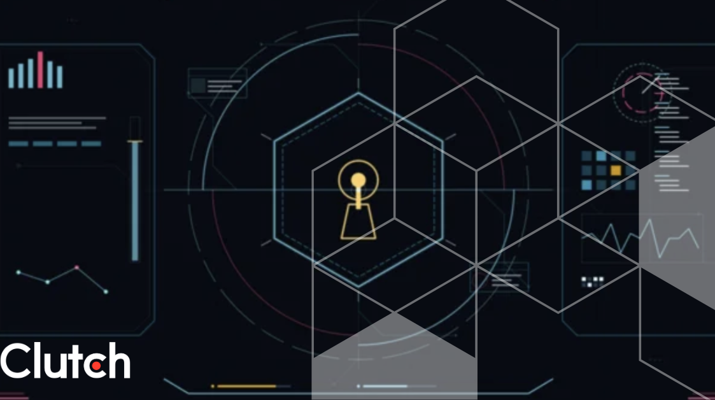

Updated February 24, 2026
ChatGPT is a next-level artificial intelligence tool that businesses can implement to streamline various processes, but it’s not without its limitations. Learn how ChatGPT works and how it will impact traditional business services.
ChatGPT, an extremely advanced conversational AI, has generated quite the buzz for its potential real-world applications — declared the best AI chatbot available to the general public, it reached one million users just one week after launching.
With the ability to write emails, essays, and even code, business leaders, journalists, marketers, developers, and educators have been speculating how this tool will change their respective industries.
Looking for a Software Development agency?
Compare our list of top Software Development companies near you
With so many potential applications, this AI tool will likely be making the rounds in the B2B space over the next few years. But would it be an effective tool for your business?
The answer: it depends on your industry and how you use it.
This article breaks down the basics of ChatGPT, how businesses plan to use it, and its limitations.
OpenAI is a San Francisco-based tech company (with CEO Sam Altman and Co-Founder Elon Musk at the helm) that brought software like GPT-3 and DALL-E2 to the forefront.
ChatGPT was launched in November 2022 and is the latest iteration of their GPT (Generative Pre-Trained Transformer) model, and backed by Microsoft, which donated $1 billion to OpenAI.
Using a Microsoft Azure AI, ChatGPT is meant to work as a natural language processing model that generates human-like text.
While ChatGPT isn’t monetized at this time, $200 million in revenue is expected by OpenAI at the end of 2023.
ChatGPT generates text based on information that’s available online. It can write full pieces of content or help users generate ideas.
The content generated by the AI system is said to be extremely clear and advanced – to the point that the AI-written scripts even fool scientists.
As one of the more efficient computer programs, ChatGPT can remember past responses, weed out any potentially racist or sexist information, and allow users to provide corrections to their algorithm.
Users have the capability to provide fixes to the generative text if needed, which is on course for any technology created by humans.
ChatGPT is still an up-and-coming technology; despite encompassing large language models, it still has its limitations. While ChatGPT still has many useful applications, it is important to consider how certain services may still require a human touch.
Here are a few of ChatGPT’s shortcomings and how it can affect businesses:
In a few cases, ChatGPT’s responses have delivered incorrect information, biased answers, and overused phrases, adversely impacting the overall quality of a piece of content.
For example, when CNBC asked ChatGBT to generate the lyrics of “The Ballad of Dwight Fry,” it created its own lyrics rather than displaying the actual lyrics.
Chris Varner, a Marketing Specialist at WebFX who has used ChatGPT to draft outlines and fix broken code, acknowledged this shortcoming, saying,“The most significant issue is content accuracy. These models are great at sounding accurate, but sounding accurate and being accurate are two very different things. The biggest challenge is knowing how to tell the difference.”
Similarly, code generated by ChatGPT could be wrong, not very functional, or too complex.
In a recent blog post published by Level Up Coding, one developer acknowledged that when they asked ChatGPT to write React components, it used general props items and didn’t follow industry standards. This created an overly-verbose code, meaning that it was overly complex, which could impact the readability of the code and maintenance in the future.
Because of this, businesses simply can’t rely on ChatGPT alone for their processes.
When AI is developed, it has to be ‘trained’ using data. ChatGPT happened to have been taught using data from before 2021, meaning that it can’t access information or events that have happened since then.
Even now, just a month after the product became available to the public, the data being provided is 2 years out of date. For many, this doesn’t suffice — having current information is essential to the credibility of your business.
Additionally, there are some ethical concerns to how AIs are trained. Like any AI, if any biases exist in the training data, ChatGPT may provide unfair or inaccurate results.
While ChatGPT has been praised for its ability to weed out potentially racist or sexist information, many people are still concerned about what AI-generated content means for marginalized groups.
This is very important to keep in mind, regardless of how you plan to use ChatGPT in your business.
Humans can provide critical thinking and problem-solving strategies that an AI system simply can’t. ChatGPT’s lack of critical thinking and, what we consider common sense, can cause problems in various applications.
For instance, ChatGPT would have a limited ability to understand multifaceted and complex problems. If a potential customer asked a multi-tier question within a chatbot that used ChatGPT, the program may not understand the nuances of the questions and provide an inaccurate response.
Because it lacks complexity, ChatGPT also can’t write code that requires a lot of context. For developers, this means that ChatGPT isn’t very helpful if they don’t already know how to approach a project.
Developers would need to provide all of the context for their code to get the product they want, which is simply unrealistic.
While ChatGPT caught the eye of many SEOs and content writers thanks to the appealing idea of scaling up their content generation, many wonder how the AI-generated content will perform in search.
Some companies, like BankRate, have experimented with using ChatGPT and other AI software to test how well automatically generated content ranks. After analyzing their performance, BankRate found that their AI-generated content sometimes ranks.
Danny Sullivan, Google’s Search Liaison, has responded to the buzz saying, “content created primarily for search engine rankings, however, it is done, is against our guidance.” However, he emphasized the importance of creating valuable content, saying that “if content is helpful & created for people first, that’s not an issue.”
Either way — Google isn’t happy about ChatGPT and what it means for their products or the spread of misinformation. Google search is already updating guidelines regarding AI-generated content in response to the AI’s growing popularity.
Of course, this doesn’t guarantee that guidelines or Google’s algorithm won’t change. There’s no telling how AI-generated content will rank in the future, especially if Google is able to differentiate ChatGPT content from their own AI products and search AI chatbot.
Some general rules of thumb for SEO and content marketing include creating unique, original, and valuable content, but is that jeopardized by ChatGPT? Some think so. Many marketers are concerned that using ChatGPT will create duplicate or plagiarized content, which can impact rankings.
Varner provided some guidance for those who intend to use ChatGPT to create SEO content, “A good rule of thumb - If ChatGPT can fully generate your content in a single prompt, then your content isn’t worth much. Businesses that find ways to use ChatGPT in an innovative way will be the big winners.”
Instead, ChatGPT should be used to help create content, rather than replace content writers altogether.
The need for critical thinking, creativity, and strategic decision-making in our business processes means that ChatGPT simply can’t replace real people.
Although some services like SEO, development, customer service, and content creation can use artificial intelligence to help with specific processes, human involvement is still necessary for success.
Machine learning and AI tools can provide efficiency and support, but the time it takes to QA can become an added responsibility for many teams looking to improve their internal processes.
Rather than relying entirely on ChatGPT, companies should instead use it as a tool to streamline a few select processes. ChatGPT may be better suited for generating writing prompts, suggesting product ideas, or even finding mistakes in the code.
Varner suggested that as well, saying, “The businesses that succeed will be the ones that find a way to use the tools effectively.”
Instead, work with a service provider that can utilize artificial intelligence to meet your business’s specific needs. Clutch, the leading B2B ratings and reviews platform, can help you find the right partner. Search based on location, offered services, cost, and review ratings to narrow down your search.
Learn more about how much it costs to hire an AI development company in Clutch's 'AI Pricing Guide.'


